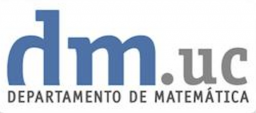The Astrophysics of precision is based on sophisticated instrumentation placed either on earth or in orbit, on the ability to manipulate large amounts of observational data and computational modelling and simulation on a large scale. It is a strongly interdisciplinary area of great growth, on which teams from the more different origin cooperate, involving astronomers, physicists, engineers, mathematicians but also chemists and geologists.
The MSc in Astrophysics and Instrumentation for Space intends to train professionals able to integrate these teams, either in major international organizations (ESA, EUSO, etc...) or in technology companies with contracts within the space field.
The very flexible structure of the Master allows students to choose course units that best fit their profile and that best complement their previous training, bearing in mind the career opportunities that most interest them. Therefore, they may focus on Astrophysics and Theoretical Cosmology or Computational Modelling and Data Analysis, or on Instrumentation and Navigation Engineering.
The program reflects the excellence of scientific and technical activities of the Departments of Physics and Mathematics of FCTUC in the fields of instrumentation and data acquisition, of observational astronomy and geodesy, and computing, simulation and data analysis. The training is solid and multidisciplinary and that is very appreciated by employers in search of versatile individuals, familiar with diverse instrumentation and with solid knowledge of computing and informatics.
Professional Goals
- Research activities in laboratories and other research and development institutions, specially those involved with international organizations as the ESA, ESO, CERN, etc.;
- project activities in technology companies operating in the space business;
- activities related with the services of high technological potential;
- educational activities either in teaching organizations or in museums and related.
Program
The master program is completed with a minimum of 120 ECTS.
The study programme of the MSc in Astrophysics and Instrumentation for Space is the following:
1st semester
- Image Processing and Analysis (6 ECTS)
- Interaction of Radiation with Matter (6 ECTS)
- Databases (optional, 6 ECTS)
- Planetary Sciences (opcional, 6 ECTS)
- Electromagnetism II (optional, 6 ECTS)
- Astronomy Elements (optional, 6 ECTS)
- Quantum Physics (optional, 6 ECTS)
- Vacuum Physics and Technology (optional, 6 ECTS)
- Instrumentation and Data Acquisition Systems (optional, 6 ECTS)
- Introduction to Astrophysics (optional, 6 ECTS)
Note: The student should register in optional curricular units in a total of 18 ECTS, bearing in mind the maximum limit of optional ECTS, per subject area.
Note: An optional 1st semester course may be chosen among units taught in the Master’s Degrees in Physics, Physical Engineering and Mathematics, or in the 4th and 5th year of the Integrated Master’s Degree in Biomedical Engineering, in a total of 6 ECTS (choice subject to the approval of the program coordinators).
2nd semester
- Space Instrumentation (6 ECTS)
- General Relativity and Cosmology (6 ECTS)
- Topics of Modern Astrophysics (6 ECTS)
- Digital Cartography (optional, 6 ECTS)
- Fluid Dynamics and Magnetohydrodynamics (optional, 6 ECTS)
- High Energy Physics (optional, 6 ECTS)
- Celestial Mechanics (optional, 6 ECTS)
- Simulation and Monte Carlo Methods (optional, 6 ECTS)
- Spatial Systems of Positioning and Navigation (optional, 6 ECTS)
- Telemetry and Telemanagement (optional, 6 ECTS)
- Quantum Field Theory (optional, 6 ECTS)
Note: The student should register in optional curricular units in a total of 12 ECTS, bearing in mind the maximum limit of optional ECTS, per subject area.
3rd semester
- Astrophysics Seminar (6 ECTS)
- Dissertation/Internship (annual, 48 ECTS)
- Parallel Computing (optional, 6 ECTS)
- Instrumentation for Radiation Physics (optional, 6 ECTS)
Note: The student should register in one optional course of 6 ECTS, bearing in mind the maximum limit of optional ECTS, per subject area.
4th semester
- Dissertation/Internship (annual, 48 ECTS)
Admission Requirements
The applicants for this master's degree must hold a Bachelor’s degree in Physics, Physics Engineering, Mathematics, Geographical Engineering or related areas.
Candidates should check the admission requirements available on the university's site, in addition to the information provided here.

